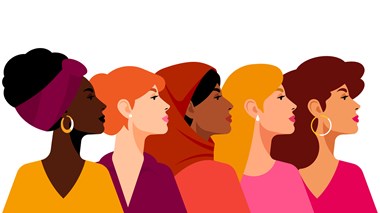Another year rolls by and what a year it has been. In the run up to International Women’s Day, several reports have been published that shine a light on some of the challenges faced by working women – and how these have been exacerbated by the pandemic. The Women and Work All Party Parliamentary Group’s Toolkit and Annual Report highlights the disproportionate effects that the pandemic has had on women’s wellbeing and mental health. The report, which the Association of British Insurers (ABI) contributed to, states that “mothers on the lowest incomes are eight times more at risk of losing their jobs due to school closures, two-thirds of working mothers said they were the ‘default’ parent during lockdown (taking on the bulk of home schooling and other childcare) and, globally, women are disproportionately represented in industries that declined in 2020 due to COVID-19.”
Yet, there are some glimmers of hope. The final report of the Hampton-Alexander Review – which investigates female representation at board level and in leadership roles – showed that in January 2021 34.3% of those on FTSE 350 boards were women, compared to just 9.5% in 2011. However, despite this progress, speakers at the launch event were keen to point out that positive headlines are not the whole story and the pace of change as regards ‘women at the top’ has been too slow.
 In the Pipeline Women Count 2020 Report, published near the start of this pandemic, they found that the FTSE 100 had more Chief Executives named Peter than women. In the FTSE 350 women lead just 5% of firms. Role models at work are important, particularly for women - they provide inspiration and open up new possibilities. We are seeing gradual progress in the Insurance and Long-Term Savings sector, where 29% of Board members and 24% of those at Exec level are women. We’re also lucky to have many women in our sector who are strong role models and who are showing the next generation what can be achieved and how to achieve it.
In the Pipeline Women Count 2020 Report, published near the start of this pandemic, they found that the FTSE 100 had more Chief Executives named Peter than women. In the FTSE 350 women lead just 5% of firms. Role models at work are important, particularly for women - they provide inspiration and open up new possibilities. We are seeing gradual progress in the Insurance and Long-Term Savings sector, where 29% of Board members and 24% of those at Exec level are women. We’re also lucky to have many women in our sector who are strong role models and who are showing the next generation what can be achieved and how to achieve it.
One area of opportunity gaining renewed traction, for the right reasons, is flexible working. And by this we don’t mean ‘fake flex,’ a term used by campaigner, Anna Whitehouse (otherwise known as ‘Mother Pukka’), to describe the strange blurring of work and home in which we currently find ourselves and where it is not a choice. We mean flexible working that works for the individual and for the employer. Flexible working that benefits everyone and supports people – but especially women – to progress their careers while balancing other responsibilities. Flexible working, when it really is flexible, not only improves equity of opportunity and wellbeing – but it also increases innovation, productivity and creativity. It makes organisations more diverse and inclusive, and it makes them more profitable too.
There is no one size fits all when it comes to flexible working. It is a term that speaks for itself. As organisations grapple with what flexible working looks like for them over the coming months – and how hybrid working is or is not woven into that – there are increasing calls from different sides to make flexible working a ‘day one’ right (see the CIPD’s recent campaign, Flex from 1st, and the Women and Work APPG report). In particular, the Flex from 1st campaign highlights how those in lower paid occupations often don’t have access to the same flexible working opportunities as those in higher paid professions. With the Employment Bill expected to be published next year, the momentum around these issues is clearly building.
This is why flexible working is one pillar of the ABI’s 2021 Diversity and Inclusion Strategy. Our own 2018 Gender Seniority Gap report highlights the need to make all forms of flexible working, particularly job sharing, much more widely available and publicised. One of our members, Zurich, started advertising all jobs with ‘part-time, job share or flexible working options’ right next to the role title. This resulted in double the number of both women and men applying for roles and the number of women securing senior roles increased by one third. It’s also great to see the recent call from the Government Equalities Office to make flexible working a standard option for employees - and published alongside evidence showing that 9 out of 10 jobseekers want increased flexibility.
While we are taking steps in the right direction and many ABI member firms are leading the way in this space, there is clearly still much more to do. This past year has completely upturned the way we think about work and how, where and when we work. That is why, in the first half of 2021, the ABI will launch a new campaign – Making Flexible Work – working closely with our members to improve flexible working opportunities for everyone across the Insurance and Long-Term Savings sector. As another International Women’s Day comes around, we need to redouble our efforts to create equality of opportunity in our industry and that starts with getting our own house in order first.
If you would like to find out more about the new Making Flexible Work campaign and how your organisation can get involved, then please contact Chloe Tait and Katy Murray.
